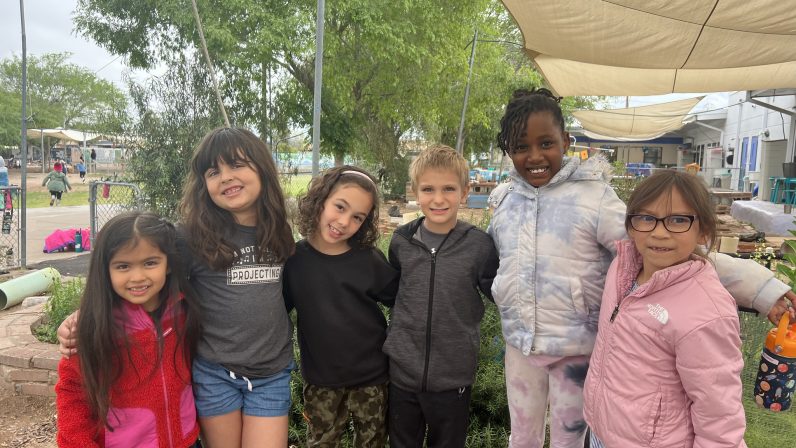This post was written by Gabryella Behnke, our 1st/2nd grade teacher.
Last week, I had the privilege of leading a staff meeting that focused on what social justice and social-emotional learning looks like in the 1st & 2nd grade class. The lead teachers have taken turns presenting their practices and philosophies over the past few months. I was able to learn from these passionate colleagues of mine, ask them questions, and feel repeated sparks of inspiration from their craft. Each meeting helped me hone in on what I wanted to share when it was finally my turn.
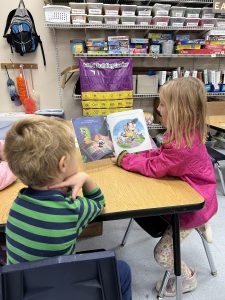 At the first and second grade level in a school such as ours with an emergent curriculum, most of our work on social justice comes from organic conversations. Sometimes, these conversations are brought on through books we read as a class and other times, they are just normal conversations between curious kids as they try to figure out the world around them.
At the first and second grade level in a school such as ours with an emergent curriculum, most of our work on social justice comes from organic conversations. Sometimes, these conversations are brought on through books we read as a class and other times, they are just normal conversations between curious kids as they try to figure out the world around them.
One time, we read a book that had a “fat” goblin in it. This led to an entire discussion about bodies, how they are different, and why they aren’t all the same on the outside. A different time, students were practicing gratitude and writing down things that they were grateful for to put on our gratitude tree on the door. I overheard some of them talking about living in a two-story house instead of a one-story house and how that meant they were “rich”. This brought on a class conversation about family dynamics and values. It was shared that some cultures live with families for a long time, even if they can afford to live on their own. This sparked other students to share what their families value. Another time during lunch, someone was talking about their grandparents and someone else asked why they call them the name they use in their family. This brought on a class conversation about what we call our grandparents and why. Some shared it was preference while others shared it was because of their family’s language or culture.
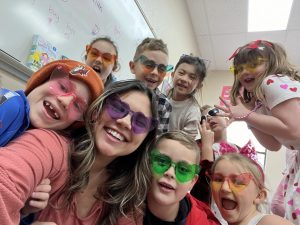 Things like this happen on a regular basis. Our emergent curriculum gives us the flexibility to carve out time in our days to turn these organic conversations into rich discussions to learn from. The majority of these conversations are child-led. I am there to ask them the big questions that get them thinking in new ways. I am there to guide the direction of the conversations. I am there to support and mediate the discussions. But they are the ones that are sharing their the thoughts, ideas, feelings, and experiences. Here at the Seed, we have a unique opportunity to take so many different topics that come up as teaching moments and learning opportunities. I recognize that this is a privilege that might differ from classes at other schools. I am so grateful for it because I believe in this work that we do.
Things like this happen on a regular basis. Our emergent curriculum gives us the flexibility to carve out time in our days to turn these organic conversations into rich discussions to learn from. The majority of these conversations are child-led. I am there to ask them the big questions that get them thinking in new ways. I am there to guide the direction of the conversations. I am there to support and mediate the discussions. But they are the ones that are sharing their the thoughts, ideas, feelings, and experiences. Here at the Seed, we have a unique opportunity to take so many different topics that come up as teaching moments and learning opportunities. I recognize that this is a privilege that might differ from classes at other schools. I am so grateful for it because I believe in this work that we do.
Often times, people tend to have a fear of the unknown or a lack of control so they avoid these situations as much as possible. I am not immune to these fears myself. I never know where these organic conversations are going to lead us to, but it feels important. After years of doing this, I can sense the weight that these conversations carry and I can see the positive impact they have. When I talk to other people outside of our Seed community about these things, they are floored. It is out of the norm for most of them so naturally, they question everything.
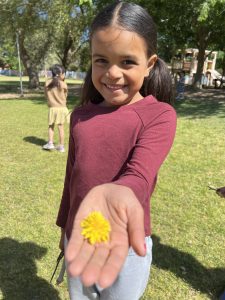 “What do you say if they bring up something inappropriate?” or, “What if the topics are too big or scary for them?” Well if they’re bringing it up, then they already know about it and as humans, it’s perfectly natural to be curious about it and ask questions.
“What do you say if they bring up something inappropriate?” or, “What if the topics are too big or scary for them?” Well if they’re bringing it up, then they already know about it and as humans, it’s perfectly natural to be curious about it and ask questions.
“What if something “political” comes up and not every family has the same beliefs?” That happens everyday, everywhere! It’s basically like having a mediator while they share their current knowledge. Then, they get to form their own opinions based on what they hear and have practice disagreeing with other opinions in a safe space.
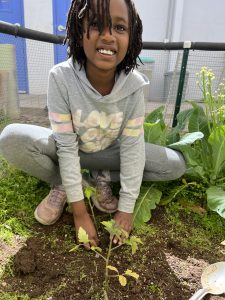 “What if someone says something that is offensive to someone else?” Then they learn why it might offend someone and what a better way to phrase it might be.
“What if someone says something that is offensive to someone else?” Then they learn why it might offend someone and what a better way to phrase it might be.
“What if you don’t know the answer?” Then I tell them I don’t know the answer and ask if someone else knows. If no one is sure, I tell them that I’ll have to find more information about it and that we should table the conversation for the time being until I can circle back with what I find out.
“What if it’s a sensitive subject and you don’t know what their families would be comfortable with?” Then I tell them to ask their parents more about it at home. But typically in this community, families are comfortable with anything that teaches inclusivity, compassion, and kindness.
And I feel incredibly lucky to be part of it.
♡

